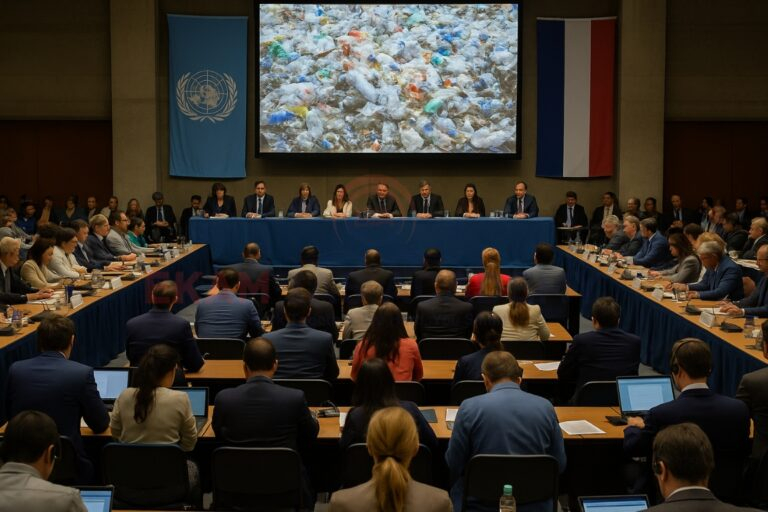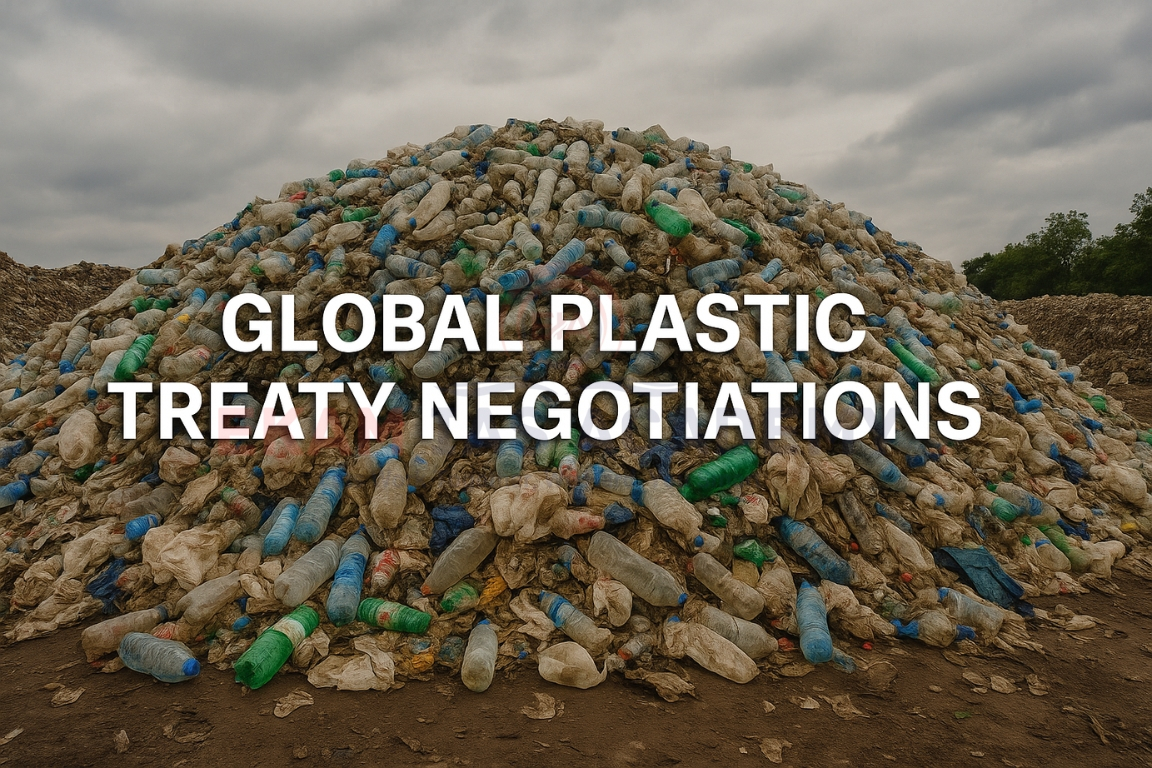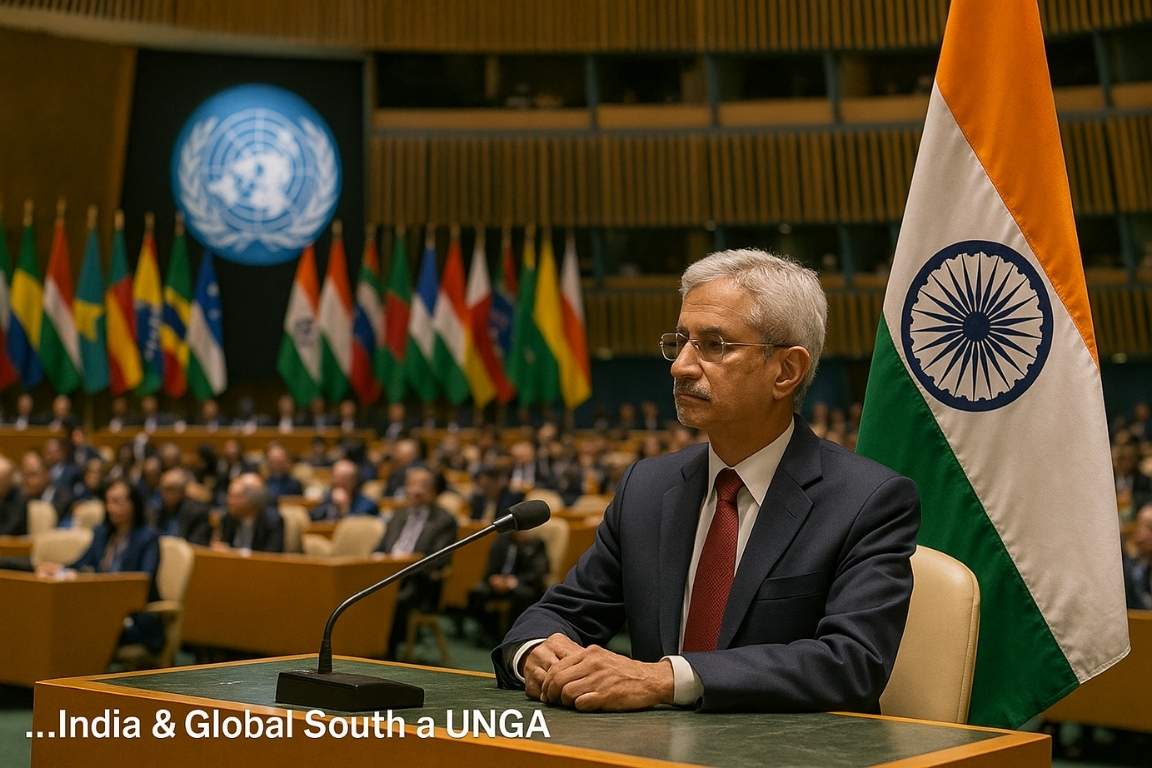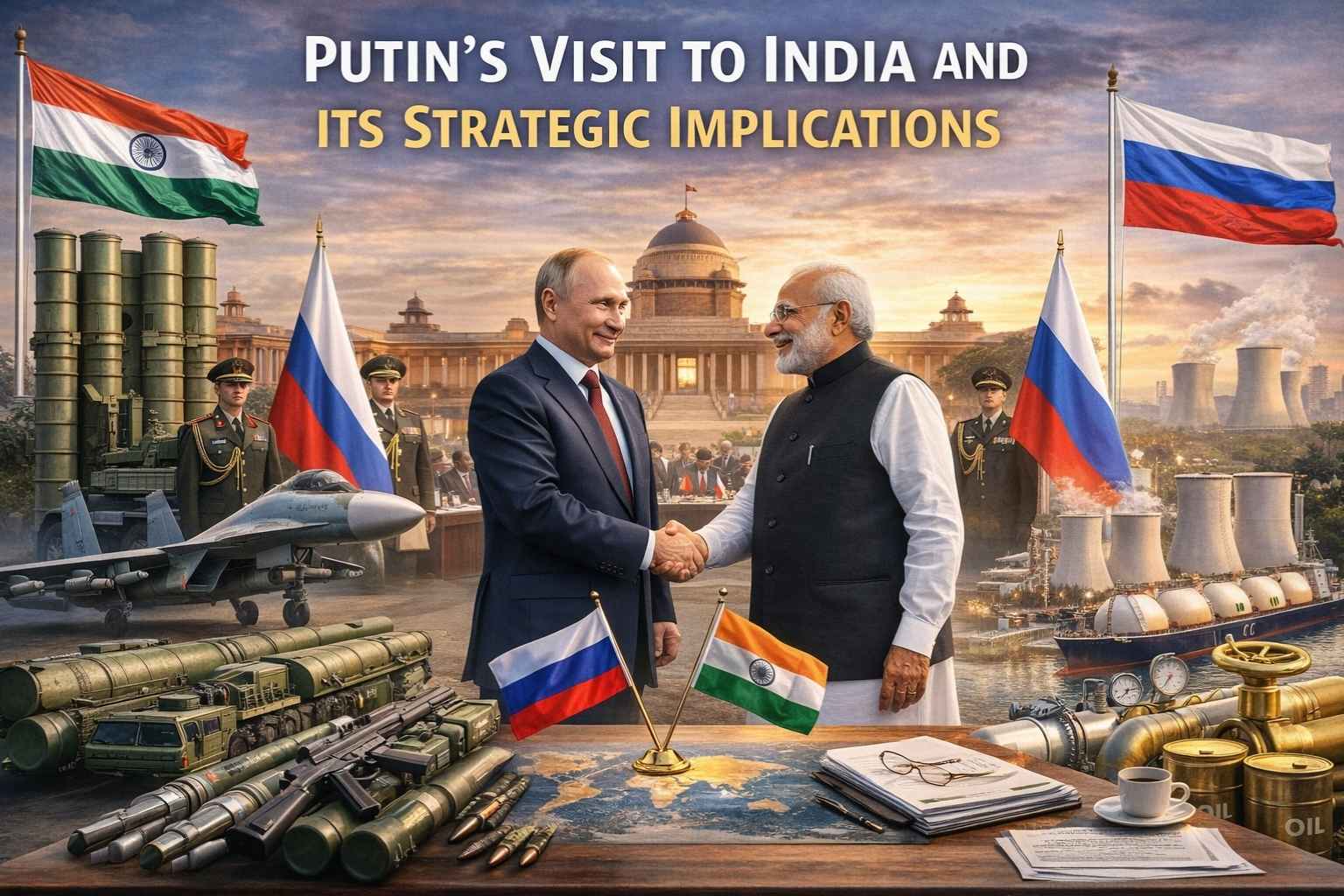The sixth round of UNEP-led negotiations (since 2022) on a global treaty to tackle plastic pollution failed to reach consensus. Deep divisions remain among countries on whether addressing plastic pollution requires cutting production itself.
Global scenario:
- The world produces 430 million tonnes (MT) of plastic annually, two-thirds of which are short-lived products.
- 46% ends up in landfills, and 22% is mismanaged and turns into litter.
- In 2019, plastics contributed 1.8 billion MT of greenhouse gas emissions (3.4% of global total).
India’s case:
- Generates 3.4 MT of plastic waste annually, but recycles only 30%.
- Consumption increased from 14 MT (2016-17) to over 20 MT (2019-20).
- Ban exists on 20 single-use plastic items (cups, straws, spoons), but impact on waste management remains limited.

Key Issues in Negotiations
- Waste Management vs. Production Cuts: Some countries argue that better recycling and market incentives can manage the plastic waste problem. Others insist that reducing production at the source is the only sustainable solution.
- Microplastics & Food Systems: Growing evidence shows plastic entering human, animal, and marine food chains. Island nations are overwhelmed by plastic debris washing up on their shores.
- Trade Concerns: Many countries fear that calls to reduce plastic production could be disguised trade barriers. Rising tariff uncertainties make negotiations more difficult.
India’s Position & Challenges
- Ban on some single-use plastics has nudged consumers toward paper and cloth alternatives.
- However, lack of strong recycling infrastructure limits the effectiveness of such bans.
- Need for better collection, segregation, and circular economy models.
Way Forward
- Build mutual trust among nations to avoid deadlock in treaty talks.
- Recognise plastic as both an environmental and health hazard, not just a convenience product.
- Invest in technologies for recycling, biodegradable substitutes, and global cooperation.
- Balance between economic interests and the urgency of environmental protection.
Conclusion
Without trust and willingness to compromise, future treaty meetings will face the same deadlock. Plastic pollution is no longer just a waste issue but a global climate, health, and trade challenge. Real progress requires collective commitment to both manage waste better and curb unnecessary production.





